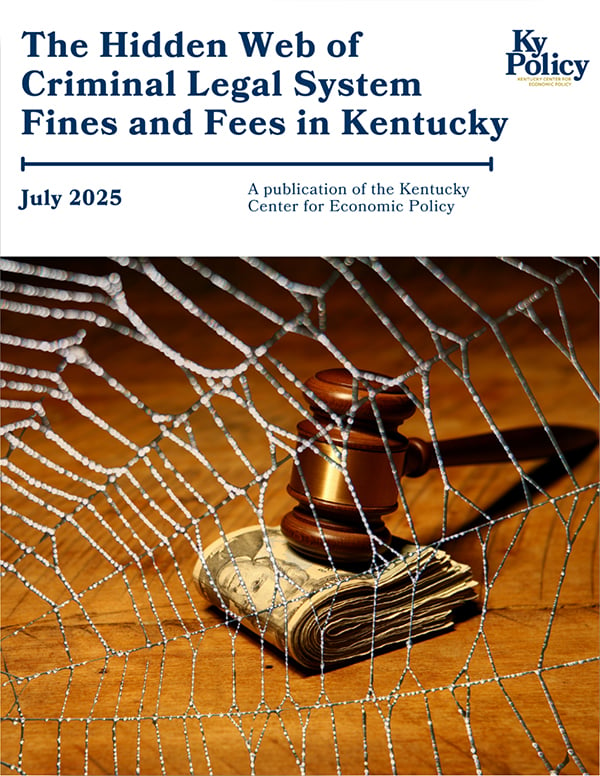Which of the following is true of the General Assembly and its supermajority?
A. it excluded itself and it’s administrative arm, the Legislative Research Commission, from the open records law in 2021;
B. it justified that change in the law after 45 years by asserting that it’s purpose was to protect constituent privacy;
C. it’s actual purpose was to control the flow of legislative records and information to the public in order to insulate itself from oversight and accountability;
D. it used its power to invest the public with the right of access to public records in 1976 but abused its power by withholding a public record on and after March 2, 2023;
E. it cynically exploited the record withheld on and after March 2, 2023, in a bungling attempt at political gain;
F. all of the above.
The answer is, of course, F, and “F” is the grade the supermajority earns for its failing transparency record.
However the public belatedly interpreted the significance of the contents of the March 2, 2023, letter from a University of Kentucky Healthcare official to a state representative, the letter’s story is fundamentally a story about public records, timely access denied, calculated deception, and breach of public trust. And the Republican candidate for governor, Daniel Cameron, appeared eager to perpetuate the deception.
Lexington Herald-Leader opinion editor Linda Blackford provides the backstory:
“Last spring, in the midst of all the overheated debate over transgender issues in Frankfort, Rep. James Tipton did a very sensible thing. He wrote a letter to a University of Kentucky healthcare clinic to see if they performed any gender-affirming surgery.
“It turns out UK’s Transform Health Clinic had performed some mastectomies on transgender teens, so small a number that they wouldn’t even say how many because it might violate HIPPA laws. (In my experience with UK, that means fewer than five cases.)
“But then, Tipton did the political thing. He turned the UK letter over to Republican leadership. It was mentioned in a floor speech by Sen. Lindsay Tichenor in March. But instead of using the letter to answer a lot of questions, or hold a press conference, they sat on it until the governor’s race got heated up, then released it to a right-wing media site called the Washington Free Beacon.”
The March 2 letter from one official to another was a public record which meant it belonged to the public and to the arena of public debate. It was briefly referenced on the Senate floor then concealed from public scrutiny until the supermajority saw the possibility of opportunistic gain by belatedly disclosing its existence/content in a desperate attack on incumbent Democratic Governor Andy Beshear.
This, in the final analysis, is Kentucky’s supermajority, testing the limits of the public’s gullibility, and its tolerance for deception, by deciding what is good for them to know, when it is good for them to know it, and what it is not good for them to know.
But the supermajority miscalculated.
Observers debated who was at fault for the delayed release of the March 2 last Tuesday — colloquially, who had egg on their face — appearing to settle on either University of Kentucky Healthcare or the Governor. They ignored the obvious. On Wednesday, the same observers continued to debate who knew what, when they knew it, and who was obligated to share it with the public. Ultimately, those observers assigned the blame where it belonged — on Tipton, the letter’s recipient, and members of the supermajority.
What further proof does Kentucky need that the supermajority rejects the policies that support Kentucky’s open government laws and the words of the preamble to those laws:
“The people, in delegating authority, do not give their public servants the right to decide what is good for them to know; the people insist on remaining informed so they may retain control over the instruments they have created.”
Viewed from an open government perspective, it is the members of the supermajority who have egg on their faces. And make their eggs “F” for fried — mirroring their failing transparency/accountability grade.
“Nothing could be more irrational than to give people power,” the philosophical founding father of freedom of information, James Madison wrote, “and to withhold from them information with which power is abused.”
This breach of public trust is the latest example of the cynical weaponization of public records/information for political gain by an arrogant supermajority that dismisses the value of public records and information to an informed electorate, monopolizes public access, and continues to holds itself above the law.
Fortunately, the supermajority’s efforts earn them a final “F” — for fell flat.
Amye Bensenhaver is a retired assistant attorney general who authored open records and open meetings decisions in that office for 25 years. She is co-founder and co-director of the Kentucky Open Government Coalition along with Jennifer P. Brown, former editor of the Kentucky New Era and currently Hoptown Chronicle editor.


















This story certainly illustrates how the legislature and AG manipulate public records for political gain. They get an “A” on MISUSE and DISTORTION of the facts. I fear what our governance will look like if the AG, whose campaign agenda on hot button issues instills fear in voters, is elected…. Amye Bensenhaver does an invaluable service for Tribune voters by informing us of the shenanigans of elected officials more interested in maintaining power at the expense of focusing on the real needs of their constituents.